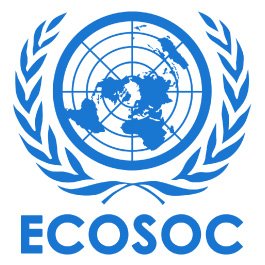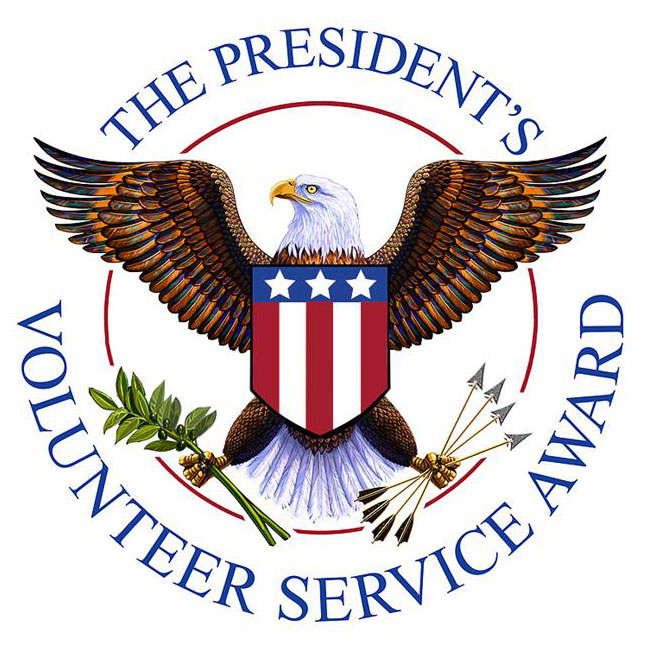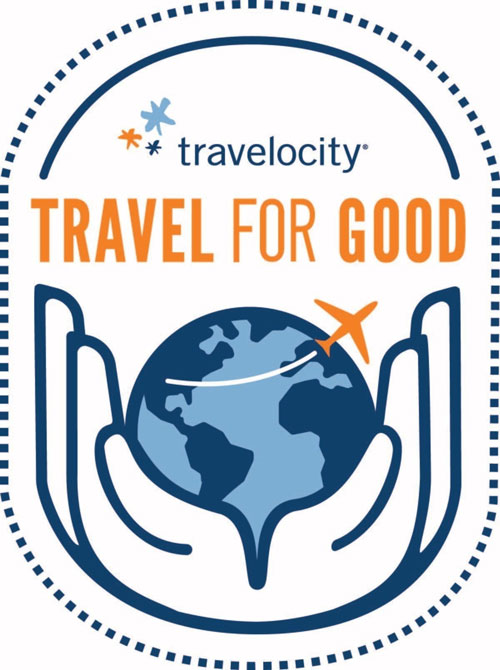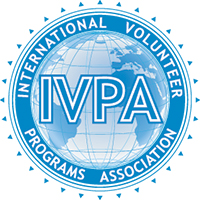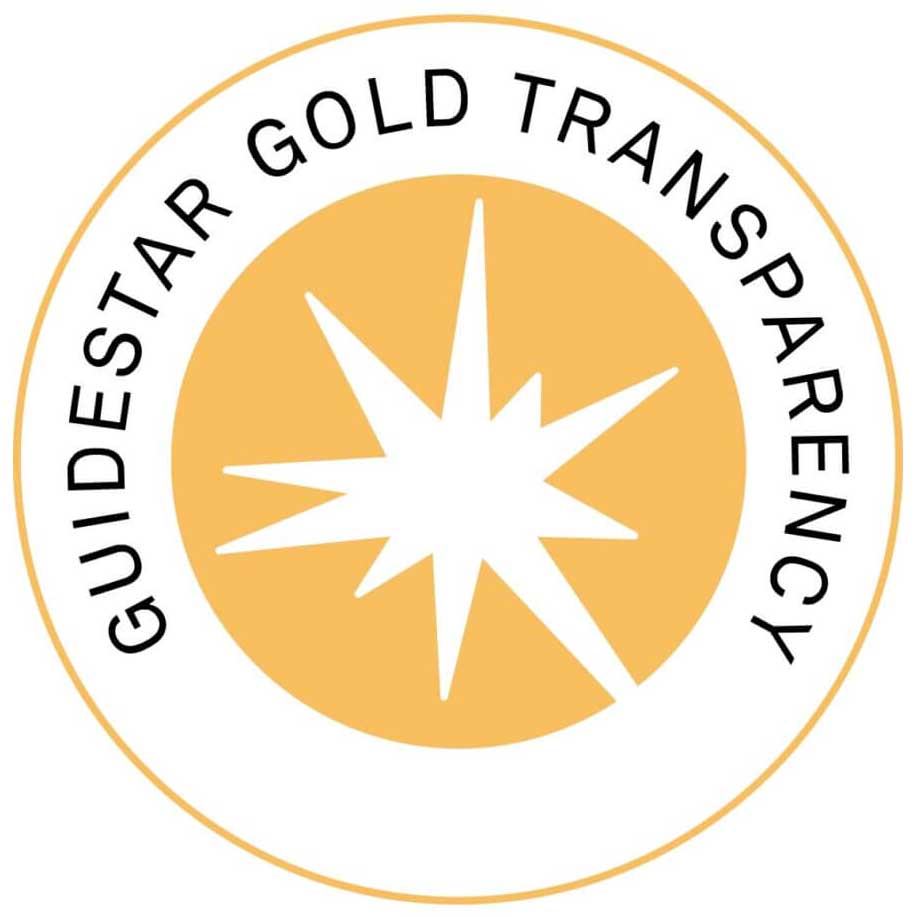Featured Articles Style 2
Featured Articles Style 2
Featured Articles Style 2
Globe Aware in WSJ: Voluntour at Home and Abroad
- Source: Wall Street Journal
There is an Interesting article in the June 27, 2010 edition of the Wall Street Journal that examines the motivating factors that lead people to sign up for volunteer vacations at home and abroad. Reporter Shelly Banjo speaks with volunteer vacationers and organizations that provide voluntourism opportunities and advises new and inexperienced travellers to carefully research destinations and work opportunities before signing up.
Globe Aware's one-week volunteer vacations are spotlighted in the article, described as "Short-term volunteer programs to promote cultural awareness and sustainability." The author describes the work undertaken by Globe Aware volunteers as "building schools in the Andes, participating in irrigation projects in South East Asia, repairing trails and roads in Costa Rica, with trip donation costs starting at $1,090, excluding airfare. For more information of Globe Aware volunteer vacation destinations click here. To register for a program, click here.
Help Wanted: 'Voluntour' at Home and Abroad
By SHELLY BANJO
When Shannon Mancuso decided to take a trip to Peru this past spring, she wanted to find a way to immerse herself in the country's culture while tapping into her skills as a social worker.
Two years out of graduate school and living in New York, Ms. Mancuso was short on time and money so she chose to go on a trip that could combine volunteerism and travel in the same week. "You get the best of both worlds," she says.
Known as "voluntourism" or service travel, a growing number of people are combining volunteering with a vacation. Organizations that run these trips report an uptick in the number of new volunteers and inquiries, particularly after a round of natural disasters and global events that have inspired travelers to want to help out during their vacations.
With hundreds of programs to choose from, it's crucial for travelers to do their homework before they take off, says Genevieve Brown, executive director of the International Volunteer Programs Association, an association of nongovernmental organizations involved in international volunteer work and internship exchanges.
Where to Go
First, decide what kind of trip you would like to go on: How long do you want to be away? Is there a particular country or cause you would like to pursue? Do you speak a language or possess certain skills that you would like to tap into?
Immediately after large disaster situations, such as the recent earthquakes in Haiti and Chile and the Gulf of Mexico oil spill, organizations typically look for people with first-responder training or volunteer management experience.
"Volunteers have to be realistic," says Erin Barnhart, director of volunteerism initiatives at volunteer website Idealist.org. "You may be well-meaning but without the training or experience you may actually become a hindrance."
The current crisis hotspots, the Gulf Coast states, have one message for inexperienced volunteers: Be patient. They have set up websites where volunteers can register, receive updates and wait until their help is needed.
"We're frustrated that we can't put more volunteers to work immediately, but the reality is it's a slow, evolving process," says Janet Pace, executive director of the Louisiana Serve Commission, which is coordinating volunteer efforts in that state. "We will need you soon."
BP, the British oil giant largely responsible for the spill, is paying many out-of-work fishermen and shrimpers to help with cleanup operations, leaving little work for volunteers in the actual cleanup efforts.
Meanwhile, a coalition of conservation groups including the Nature Conservancy and the National Audubon Society has been tapped to handle oiled wildlife and bird rescue.
"We made a decision not to let volunteers handle oil at this point," Ms. Pace says.
However, she says a growing number of volunteers will be needed to help with human services and relief efforts. Emergency distribution centers have been set up where volunteers can help distribute food and supplies, provide crisis counseling and case-management services.
Realistic expectations also come into play when choosing the right program.
"Volunteers who parachute into a country and build a school may leave feeling good about themselves but unless local people are involved in determining what volunteers do, that school might never be used because there's no capacity to, say, hire teachers," Ms. Barnhart says.
Known as drive-by volunteerism, volunteers who don't work with local organizations may replace actual paid work that can be done in a community and create a dependency on foreign volunteers, she says.
Paying for It
While it sounds counterintuitive to pay to volunteer, most trips require volunteers to pay a fee for participating. Organizations use these funds to cover their year-round coordinating and operational costs -- including lodging, predeparture training for participants and other resources needed for overseas projects such as building houses or planting trees. Often, these fees include airport pickup, side trips, translators and emergency assistance.
"Still, volunteers shouldn't pay more than $1,000 to $2,000 for programs under two weeks, not including airfare," Ms. Brown says. "And be sure to find out what that money is going toward."For trips that last more than a month, volunteers could pay more than $5,000, she says.
Before choosing a program, call the organization and ask about lodging, meals, preliminary training and if the organization has staff on the ground to assist volunteers. Ask about what local partners volunteers work with and for a sample itinerary of what kind of work volunteers are likely to do while on the trip.
A number of organizations offer matching scholarships or grants. The Volunteers for Prosperity Service Incentive Program, part of the Office of Volunteers for Prosperity at the U.S. Agency for International Development, provides grants of $500 to $1,000 to U.S. partner organizations for skilled Americans who want to volunteer abroad.
Plan for the Worst
It's important to find out if program fees cover the cost of travel insurance. Most U.S.-based insurance plans don't cover health problems, car accidents and catastrophic events in other countries.
Since many places where people volunteer are in rural areas without adequate medical care, consider purchasing additional insurance, Ms. Barnhart says.
Also, find out who you can contact in case of a natural disaster, political disruption, personal health problems or other emergencies.
If you would like more information about taking a volunteer vacation to Costa Rica, Romania, Peru, China, India, or you are interested in voluntourism in another country or on another continent, please visit Globe Aware's Destinations Gallery for program and trip descriptions, dates and Minimum Contribution Fees.
Contribute 5 Minutes to Helping right now by voting for Globe Aware!
Globe Aware is 100% volunteer funded! Please help us help you Have fun and Help people! Click on http://www.facebook.com/profile.php?id=100000830583813#!/ChaseCommunityGiving?v=app_162065369655&ref=ts
and in the box that says charity name type Globe Aware and press enter. When the page opens scroll down once more and click on the blue Globe Aware link and after a new page opens one last time look to the top right and click a green box that says "Vote Now" make sure to say allow when the Chase pop up window comes up or your vote will not count!
Thank you so so very much if you vote!! You are basically donating to a GREAT cause with just a few clicks!

Globe Aware on CNN: Finding volunteer trips that actually help
- Source: CNN
CNN reporter Marnie Hunter features Globe Aware in a June 2010 feature on volunteer vacations and the importance of having a professional, long-term facilitator working as a liaison to ensure projects are high quality, well organized and designed to meet the needs of the communities they are built for. The reporter notes that, “a hastily built structure may not benefit the community it's designed to help,” and that, “a traveler's biggest contribution may be through cross-cultural exchange.” Both valid points, Globe Aware employs people within the destination communities and on the ground to ensure volunteer vacationers mesh with the local communities and all parties benefit from each individual trip and project.
Finding volunteer trips that actually help
By Marnie Hunter, CNN
(CNN) -- The idea of volunteering away from home seems like a win-win to many travelers: a way to experience and help another community at the same time. But without a solid, well-designed program and reasonable expectations, volunteer travel can do more harm than good.
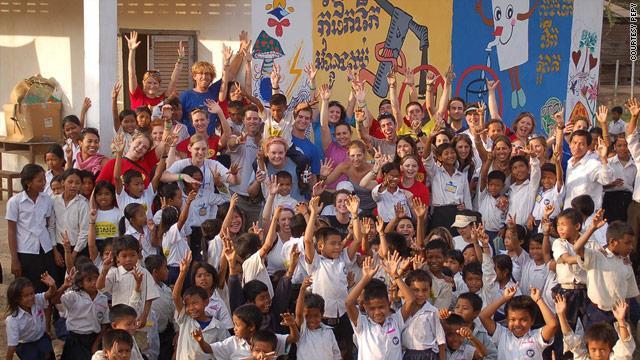 Showing up in parts unknown, hoping to make a big difference in a small amount of time, is likely to leave travelers and hosts disappointed.
Showing up in parts unknown, hoping to make a big difference in a small amount of time, is likely to leave travelers and hosts disappointed.
"You're not going to change the world in a week or two. You're not going to eradicate poverty in a village. You're not going to teach a kid how to read," said Doug Cutchins, a former Peace Corps volunteer and co-author of "Volunteer Vacations: Short-term Adventures That Will Benefit You and Others."
The key to having a positive impact in a short amount of time is realizing that your efforts are part of a process, Cutchins said. Results are subtle and come about slowly through a long line of volunteers.
"Development is a tricky process, and as Americans we are very, very product-oriented," he said.
He's concerned with what he calls "development by monument," where volunteers want a completed building or another physical representation of their volunteer efforts to answer the inevitable "what did you accomplish?" question from friends and family at home.
"That's one of the first questions you're going to get asked, and it's hard sometimes for people to say, 'well, I was kind of part of a process, and we engaged in cultural exchange.' But that's really the very best way to do it," Cutchins said.
Daniela Papi agrees. She is one of the founders of PEPY, a non-governmental organization dedicated to educational development in rural Cambodia. PEPY Tours hosts learning trips that help fund the group's projects.
The organization has gone from referring to those trips as "voluntourism" to calling them "edu-tourism" or "educational adventures."
"The number one thing that's going to happen is that you are going to have a new perspective on your country, on your life, on your choices and how they affect the world, on what it means to live in whatever country that is," Papi said.
The 10 days or so spent traveling and learning would ideally inform participants' choices and outlook at home, where they will have the largest impact, Papi said.
Teaching English and construction projects are the most common types of voluntourism projects Papi sees in her region. Travelers involved in a construction voluntourism project should ask the operator and organizations involved about the plans for the structure when the volunteers go home, she cautions. Who is going to take care of it, who will work in it, how will they be trained, and who will fund the training?
A poorly constructed school without trained teachers isn't likely to have the benefits volunteers envision. And in the case of teaching English, who will teach the children when there are no volunteers, and what effect does a revolving-door model of teaching have on kids?
Successful projects start with the needs of the community, voluntourism organizers say.
"We don't go in and say, 'this is what your problem is, and this is how we're going to fix it,' " said Catherine McMillan, a spokeswoman for Globe Aware, a nonprofit that develops short-term volunteer programs.
Members of the community should be involved in identifying and addressing areas where partner organizations can help.
The organization you're working with should have a strong and ongoing relationship with the community, local non-governmental organizations and project leaders on the ground.
"It's a complicated kind of tourism, because you don't want to send folks and do something and then not have, not measure the consequences of that action in the long term," said Erica Harms, director of the Tourism Sustainability Council, an initiative involving the United Nations and travel partners.
Travelers should ask about the program's history and its involvement with NGOs or other organizations. Find out where the funding is coming from and where it is being allocated. Ask about how the project is supported over time and how the community was involved in its development, Harms said.
And keep in mind that organizing volunteers to help support these efforts is not free. There are costs associated with housing and feeding volunteers, with transporting them locally, with training them and establishing a system of working that allows visitors to contribute for a short period.
Cutchins says reputable organizations will be up-front about costs, what is included and where your money will be spent.
Globe Aware's McMillan recommends looking up nonprofits on Guidestar.org, which compiles tax forms from nonprofits, to see how operators are spending. It's also a good idea to contact past volunteers or people who are familiar with the organization's work on site.
Travelers should be realistic about what would make for a positive experience and select opportunities that fit their skills and interests.
"I think there are very few people who would make really bad volunteers. ... It's really about matching the right person with the right opportunity," Cutchins said.
If you would like more information about taking a volunteer vacation to Costa Rica, Romania, Peru, China, India, or you are interested in voluntourism in another country or on another continent, please visit Globe Aware's Destinations Gallery for program and trip descriptions, dates and Minimum Contribution Fees.
Globe Aware featured as "feel-good" volunteer vacation provider
Helping Hands: Globe Aware's Volunteer Vacations in Cambodia
By Nicolai Hartvig
 Cambodia is a remarkable destination to take a volunteer vacation. This South East Asian country’s natural, spectacular beauty and vibrant communities and people amaze Globe Aware volunteer vacationers.
Cambodia is a remarkable destination to take a volunteer vacation. This South East Asian country’s natural, spectacular beauty and vibrant communities and people amaze Globe Aware volunteer vacationers.
1 Help an Elephant
Lampang, Thailand
Sadly, many of Thailand’s gentle giants are likely to have painful memories. Caught in the wild, they’re often mistreated by their caretakers, who put them to work with adventure-trekking companies or performance troupes, or remove their tusks to sell as ivory on the black market.
THE TRIP The Thai Elephant Conservation Center (from Bt3,500 per person, plus tip for mahout) in Lampang province welcomes volunteers.
Activities depend on your choice of program: you may find yourself bathing a baby elephant, learning the skills of a mahout—a fully fledged elephant handler—or, if you stay overnight, guiding your elephant into the wilderness and leaving him at his favorite spot for the night while you retire to one of three wood-and-thatch houses. The center cares for around 50 elephants and has an on-site hospital, which program fees subsidize. T+L Tip: For your own relaxing soak, try the nearby San Kamphaeng hot springs.
2 Build Wheelchairs
Siem Reap, Cambodia
THE TRIP Week-long programs from Globe Aware (globeaware.org; US$1,200 per person excluding airfare) run in Siem Reap once or twice a month, from Saturday to Saturday. Itineraries are flexible, but volunteers can expect a plethora of activities: think putting together wheelchairs and hand-delivering them to landmine victims, working with local street children and teaching English to Buddhist novice monks. Cultural-awareness and cookery classes are also on offer, as well as built-in downtime—essential for checking out Siem Reap’s unmissable attractions, from the ruins at Angkor Wat to the stylish boutiques that have sprung up in the city center.
3 Teach English
Bangkok, Thailand
THE TRIP Staying in family-sized rooms provided by Cross Cultural Solutions (from US$2,784 for two weeks, excluding flights), volunteers work in local schools, community hubs and day-care centers. Children can help out as teacher’s aides—or simply play with and inspire confidence in other kids, especially those with disabilities who tend to be stigmatized in Thai society. After school, volunteers can soak up the local color, exploring Bangkok’s myriad temples, bazaars and food markets. They can also take their turn at being students, with Thai–cooking and language classes.
4 Spy on a Rhino
Tabin Wildlife Reserve, Borneo
THE TRIP On-the-ground info gathered on a trip with Hands Up Holidays (from US$3,750, excluding flights) will help protect these animals from extinction. An all-inclusive 15-day package has you and your family collecting invaluable survey data in Borneo’s Tabin Wildlife Reserve, home to an estimated 50 Sumatran rhinos, over three days. The rest of the time is spent on an action-packed jungle adventure, from white-water rafting in Kiulu to proboscis-monkey spotting in Sukau to a trek to the Lipad mud volcano. Jungle training and water sports also figure on the itinerary.
At night, you’ll be staying in three-star hotels, a jungle lodge and an island chalet. You’ll even get a chance to sleep under the stars, in open-air hammocks at a rainforest camp.
5 Journey with Nomads
Terelj National Park, Mongolia
THE TRIP Projects Abroad (US$3,045 for two weeks, discounts for children aged 15 or under) organizes tailored two-week–minimum trips in Mongolia’s Terelj National Park. Between travels on horse- or camel-back, volunteers may find themselves tending to animals, cooking Mongolian food from scratch, drinking traditional airaag, or fermented mare’s milk (kids can try the non-alcoholic kind), and even engaging in the odd bout of local wrestling. The remote locations and range of physical tasks on this trip make it better for smaller families with older children. Be prepared to soak in the silence and beauty of the vast, empty landscapes— and to receive your own Mongolian name.
If you would like more information about taking a volunteer vacation to Cambodia,China, India, Laos, Vietnam, Thailand, Nepal or you are interested in voluntourism in South East Asia, please visit Globe Aware's Destinations Gallery for program and trip descriptions, dates and Minimum Contribution Fees.
Globe Aware Awards Students with Scholarship
Three Dallas Youth Given an International Service Opportunity of a Lifetime
Globe Aware, a Dallas based nonprofit organization that mobilizes teams of volunteers to carry out international service projects in 15 countries around the world is proud to announce that 3 local Dallas Independent School District (DISD) students have been chosen to participate in Globe Aware’s Costa Rica Caribbean program free of charge as a result outstanding support for the Globe Aware Scholarship Fund.
Travelocity® is committed to being the traveler's champion -- before, during and after the trip – and provides the most comprehensive and proactive guarantee in the industry (www.travelocity.com/guarantee). This customer-driven focus, backed by 24/7 live phone support, competitive prices and powerful shopping technology has made Travelocity one of the largest travel companies in the world with annual gross bookings of more than U.S. $10 billion. Travelocity also owns and operates: Travelocity Business® for corporate travel; igougo.com, a leading online travel community; lastminute.com, a leader in European online travel; and ZUJI, a leader in Asia-Pacific online travel. Travelocity is owned by Sabre Holdings Corporation, a world leader in travel marketing and distribution.
Page 13 of 25

